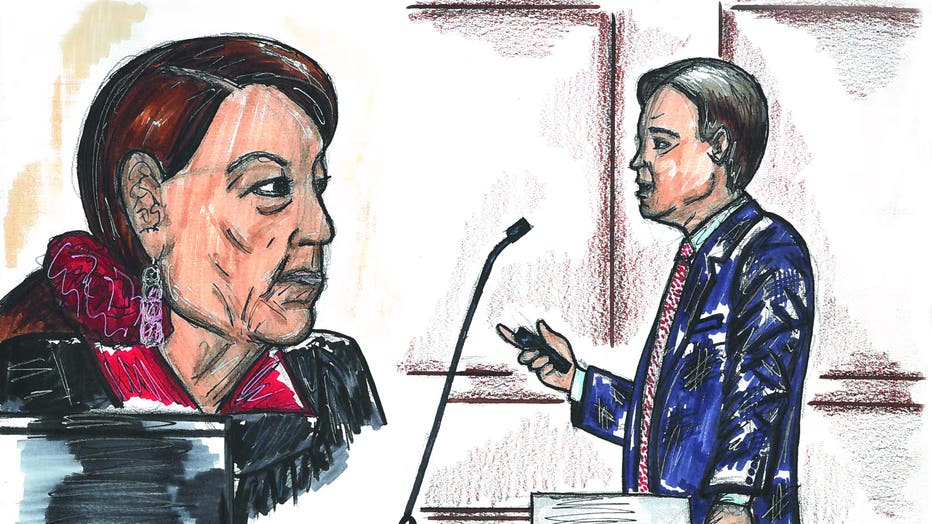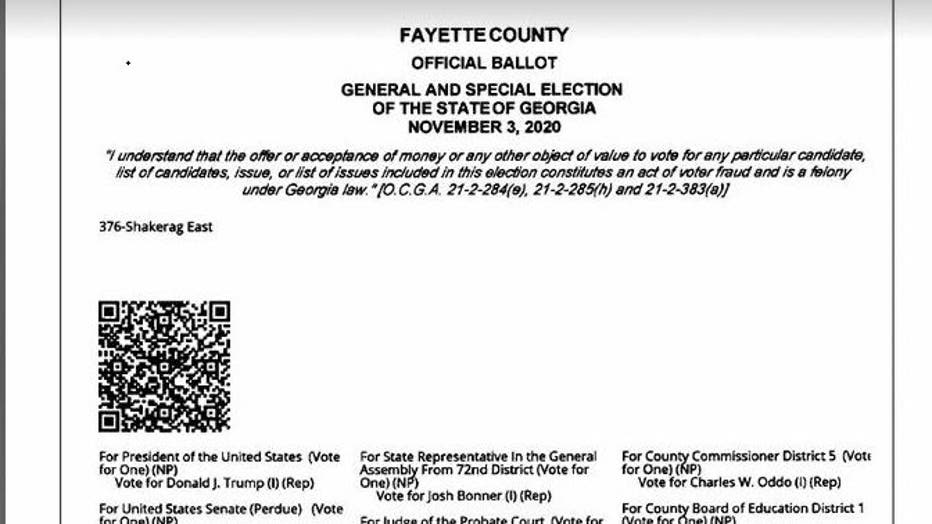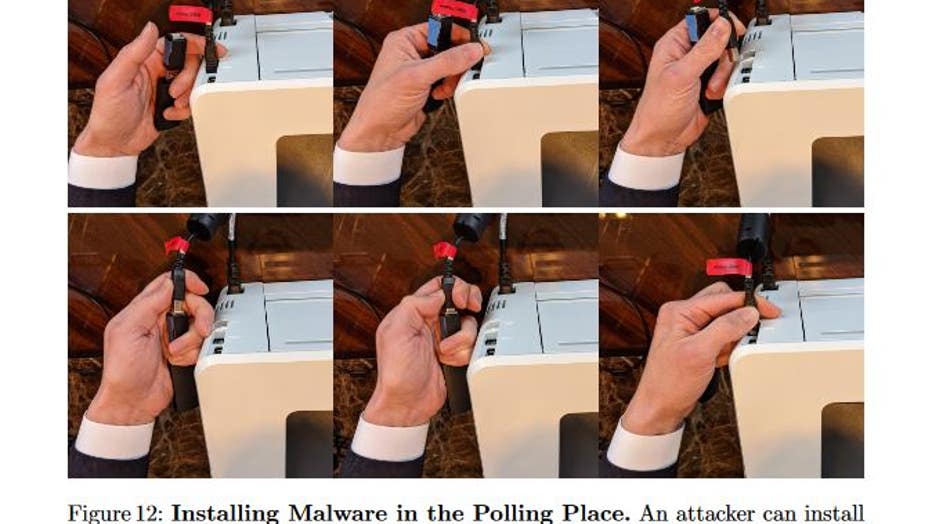Could federal judge end computer voting in Georgia?
Will paper ballots make a comeback?
Judge Amy Totenberg must decide whether to toss aside computer ballot marking devices and embrace bubble-in paper ballots. The future of Georgia's election system is up in the air.
ATLANTA - Georgians are already voting early in next month's presidential primary, using the same Dominion touchscreen system in place since 2020.
But a federal judge is expected to soon issue an order that could either lead to big changes in how Georgians vote or side with state election officials who argue the current system is safe and secure.
"There's no evidence a vote in Georgia was not counted as cast," said state attorney Josh Belinfante during closing arguments before U.S. District Judge Amy Totenberg.
A 3 1/2-week bench trial concluded earlier this month in a case originally filed in 2017 over concerns about the Karen Handel-Jon Ossoff House race.

Plaintiff attorney David Cross argues before US District Judge Amy Totenberg. (Courtroom art by Lauren Lacy)
Those plaintiffs stressed they do not deny the results of any previous election but want to protect the system from future attacks.
Since the 2017 lawsuit was filed, the state has replaced Diebold voting machines with Dominion machines, added a paper ballot format for each voter to examine and instituted Risk Limiting Audits to make sure the correct winner is certified.
But concerns have only grown about the vulnerability of the voting system every Georgian must use, concerns that escalated after what happened in Coffee County.
A series of election skeptics gained unauthorized access to the Dominion voting systems in early 2021, downloading and imaging equipment, data and software.
They went on to share everything online, the data downloaded from locations as far away as Italy and England.
Two Coffee County officials have since been indicted in the Fulton County election interference case.

One of the security flaws Dr. Alex Halderman testified he found with Georgia's computer election system. (Court exhibit)
Dr. Alex Halderman, a leading computer elections expert, testified the risk that a future Georgia election could be hacked had "materially increased."
Judge Totenberg agreed as much in her pre-trial ruling allowing the case to go forward:
"This breach and the copying and sharing of election system software and voting data to actors and entities inside and outside the state, as well as through the internet, bear serious ramifications for the future vulnerability of the State’s election system as a whole."
But state elections officials complained any upgrade to the Dominion software would cost $25 million and take too long to be tested and ready for the November General Election.
"It's just nonsensical to try to change now," said attorney Carey Miller for the state. "This is the most battle-tested and stress-tested election system in the country."
A Dominion spokesman agreed, telling the FOX 5 I-Team, "hand counts and audits have repeatedly proven that Dominion machines produce accurate results, including a historic statewide hand audit in 2020 of every single paper ballot in Georgia. There are also many layers of robust operational and procedural safeguards in place, overseen by local election officials, that help protect our elections."
There are three groups of plaintiffs in this case, each asking for slightly different decisions.
The Coalition for Good Governance wants Judge Totenberg to make all computer ballot marking devices or BMDs unconstitutional, clearing the way for every voter to bubble-in their choices on paper ballots which would be fed into a scanner. That’s the current process for mail-in voting.
Another group of voters wants the judge to let each county choose paper ballots or BMDs.
The third group wants all the electronics gone from the voting process, and all paper ballots counted by hand, not machine.

Georgia voters are encouraged to double-check their choices after printing their ballot. The scanner only reads the QR code. But a UGA study found few voters take enough time to look.
All three are equally suspicious of the QR code on Georgia ballots which tells the scanner who you picked. The voter is encouraged to review the printed names to make sure the ballot is accurate.
In court, the plaintiffs played a video showing the state’s own election expert taking 18 seconds to properly review a ballot. But a UGA study found 80 percent of voters spend less than five seconds.
"If a voter can’t verify what’s on their ballot, then there’s no way to ensure that your vote is counted as cast," argued David Cross, attorney for some of the plaintiffs.
"No evidence presented that any BMD vote has ever been changed or hacked," countered state attorney Bryan Tyson during closing arguments.
That's true. But Dr. Halderman demonstrated in court how a malicious voter could install malware or gain super access to a GA voting machine in seconds.
The state’s response: too many people would notice something so obvious.

State officials argue Halderman's free access to the Dominion system exaggerates any real world threat. (Court exhibit)
Secretary of State Brad Raffensperger successfully fought a subpoena to testify, but in a video played in court, he minimized Halderman's findings.
"Halderman was given access to the security codes," he said. "So he had total access to the equipment. And he had it for 12 weeks. And then he comes back with his report. Well, if you had that kind of access, then you could change things. Well, duh, yeah."
The state replaced all servers and equipment that were tampered with in Coffee County. There are new election board members and supervisors, too.
But the voting system remains the same.
"The train and bright light coming at us is the November 2024 election," pointed out attorney Robert McGuire for the Coalition for Good Governance. "Are we going to be ready?"

